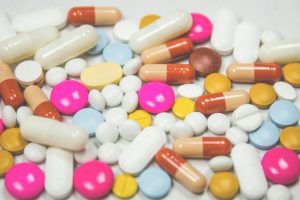The export of medical equipment to Singapore poses several challenges for the US healthcare trade. This article will discuss the key challenges faced by exporters in this industry, including regulatory compliance and certification, market access and competition, and logistics and supply chain management. Understanding and addressing these challenges is crucial for successful exports and maintaining a strong presence in the Singapore healthcare market.
Key Takeaways
- Regulatory compliance and certification requirements are essential for exporting medical equipment to Singapore.
- Market access and competition in the Singapore healthcare market can be challenging for US exporters.
- Effective logistics and supply chain management are crucial for timely delivery of medical equipment.
- Building strong relationships with local distributors and partners can help overcome market entry barriers.
- Staying up-to-date with the latest regulations and market trends is important for successful exports to Singapore.
Challenges in Exporting Medical Equipment to Singapore
Regulatory Compliance and Certification
Exporting medical equipment to Singapore requires strict regulatory compliance and certification. Companies must ensure that their products meet the necessary standards and regulations set by the Singaporean authorities. This includes obtaining the appropriate certifications and licenses to demonstrate the safety and efficacy of the medical equipment. Failure to comply with these regulations can result in delays or even rejection of the exported products.
Market Access and Competition
When it comes to market access and competition, exporting medical equipment to Singapore can present some challenges. The Singapore healthcare market is highly competitive, with a strong emphasis on quality and innovation. Companies looking to enter this market need to navigate through various regulatory requirements and certifications to ensure compliance. Additionally, there is a significant focus on B2B trade, with hospitals and healthcare providers often preferring to work with established suppliers and distributors. This can make it difficult for new entrants to gain a foothold in the market.
Logistics and Supply Chain Management
Efficient management of logistics and supply chain is crucial for successful medical equipment export to Singapore. It involves coordinating the movement of goods, ensuring timely delivery, and optimizing the distribution process. Safeguarding investments is a key consideration in this aspect, as any disruptions or delays in the supply chain can result in financial losses. It is important to establish reliable transportation networks and implement robust tracking systems to mitigate risks and ensure smooth operations.
Exporting medical equipment to Singapore can be a challenging process. From navigating complex regulations to understanding cultural differences, there are several obstacles that exporters may face. One of the main challenges is ensuring compliance with Singapore’s strict import regulations for medical devices. These regulations require exporters to obtain the necessary licenses and certifications, which can be time-consuming and costly. Additionally, exporters need to consider the cultural differences and preferences of the Singaporean market. Adapting marketing strategies and product specifications to meet the needs of the local consumers is crucial for success. At Debt Collectors International, we understand the challenges exporters face and offer debt collection solutions made simple. Our experienced team can help you navigate the complexities of exporting medical equipment to Singapore and ensure a smooth process. Contact us today to learn more about how we can assist you.
Frequently Asked Questions
What are the regulatory requirements for exporting medical equipment to Singapore?
Exporting medical equipment to Singapore requires compliance with the regulations set by the Health Sciences Authority (HSA). The equipment must meet safety and quality standards, and may require specific certifications or licenses depending on the type of equipment.
How can I ensure market access for my medical equipment in Singapore?
To ensure market access, it is important to conduct thorough market research and understand the demand for your medical equipment in Singapore. You may need to establish partnerships with local distributors or healthcare institutions to gain entry into the market.
What are the challenges in competing with local medical equipment manufacturers in Singapore?
Local manufacturers in Singapore may have established relationships with healthcare institutions and distributors, making it challenging for foreign exporters to compete. Additionally, local manufacturers may have a better understanding of the local market and customer preferences.
How can I overcome logistics and supply chain management challenges in exporting medical equipment to Singapore?
To overcome logistics and supply chain management challenges, it is important to work with reliable logistics partners who have experience in handling medical equipment. Proper planning and coordination are essential to ensure timely delivery and avoid any disruptions in the supply chain.
Are there any import taxes or duties on medical equipment imported to Singapore?
Singapore imposes import taxes and duties on certain medical equipment. It is important to consult with customs authorities or seek professional advice to understand the specific taxes and duties applicable to your medical equipment.
What are the documentation requirements for exporting medical equipment to Singapore?
Exporting medical equipment to Singapore requires proper documentation, including invoices, packing lists, certificates of origin, and any necessary permits or licenses. It is important to ensure all documentation is accurate and complete to facilitate smooth customs clearance.





